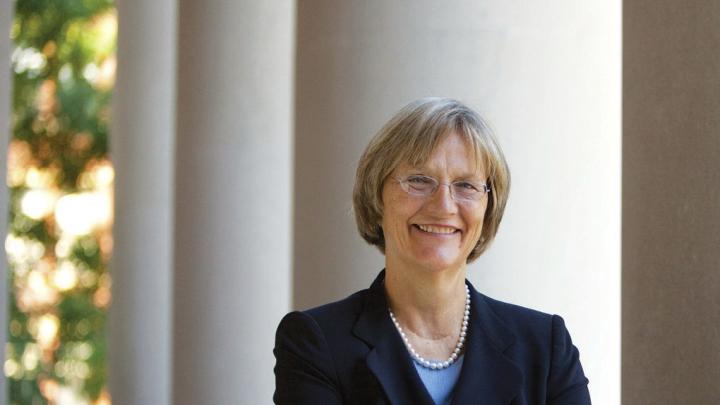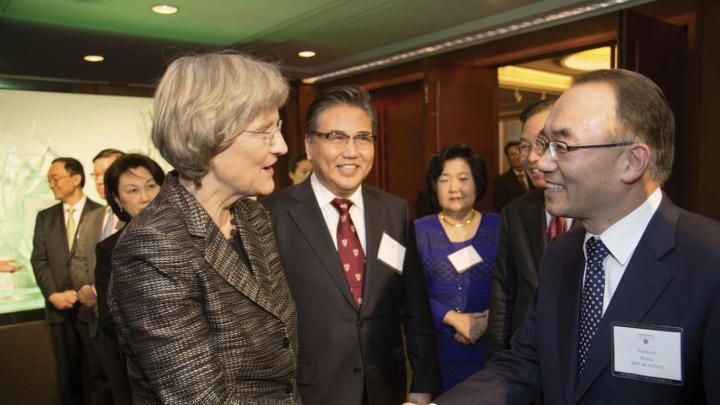When I travelled to Hong Kong and South Korea over spring break I had the privilege of seeing how much Harvard means to our alumni in other parts of the world. More than 400 alumni gathered for a reception in Hong Kong, full of questions—and quite a lot of existing knowledge about what is going on in Cambridge and Boston. In Seoul, some 300 alumni came to dinner to discuss all things Harvard—and to cheer on the men’s basketball team on the eve of their first NCAA game.
In both Hong Kong and Seoul I also had the pleasure of meeting with university leaders to talk about the issues we have in common—and some that we don’t. The six provosts, presidents, and vice-chancellors who joined me in Hong Kong are directing a good bit of their attention these days to a significant change in their undergraduate programs. A fourth year of college is being added, along with state support to fund it, to what had been a three-year degree.
My counterparts spoke with enthusiasm about what this means for the curriculum and for enriching student experience. They embraced the opportunity to expose students to a broader range of fields, to provide an education more anchored in the liberal arts. I nodded in agreement as I heard them extol the virtues of the habits of mind, of the broad thought and inquiry, the creativity and adaptability such learning inculcates. But as I nodded I also reflected on the irony of how increasingly difficult it is to defend these values here at home, even as I see them increasingly embraced in vibrant and growing Hong Kong.
In South Korea, my meeting included five university presidents. Here, too, growing investment in higher education was a key theme, and my colleagues underscored the importance of support for scientific research as a strategy for economic prosperity and international competitiveness. My colleagues asked about sequestration, budget cuts, and reduced support for research in the United States, and we speculated about what this would mean at a time when such investment is strong and steady in thriving societies like Hong Kong and South Korea.
I was struck in both meetings that the majority of my counterparts had been educated at American universities and most had spent significant portions of their careers working in universities here—as faculty, researchers and administrators. But now the opportunity seems to them to lie on the other side of the Pacific, where support for research and education is expanding and where the United States sequester seems like a self-inflicted wound—an act that my colleagues could clearly see opening competitive opportunities. We should take note.
Sincerely,
Drew Faust









